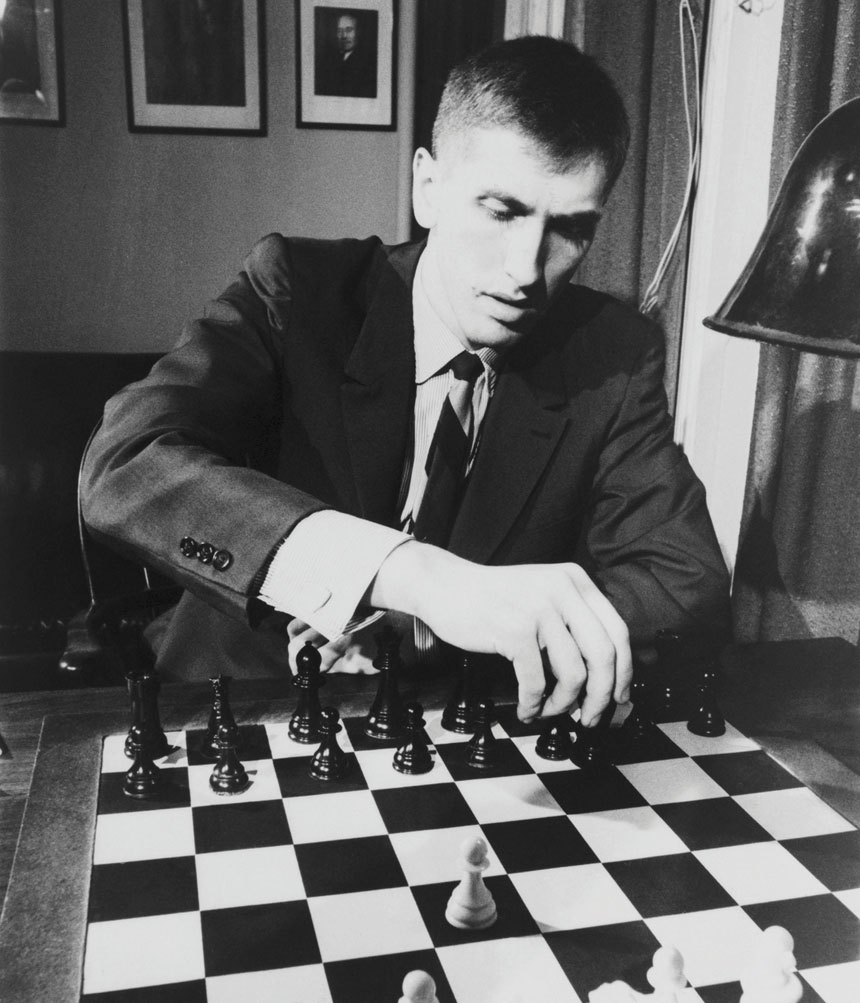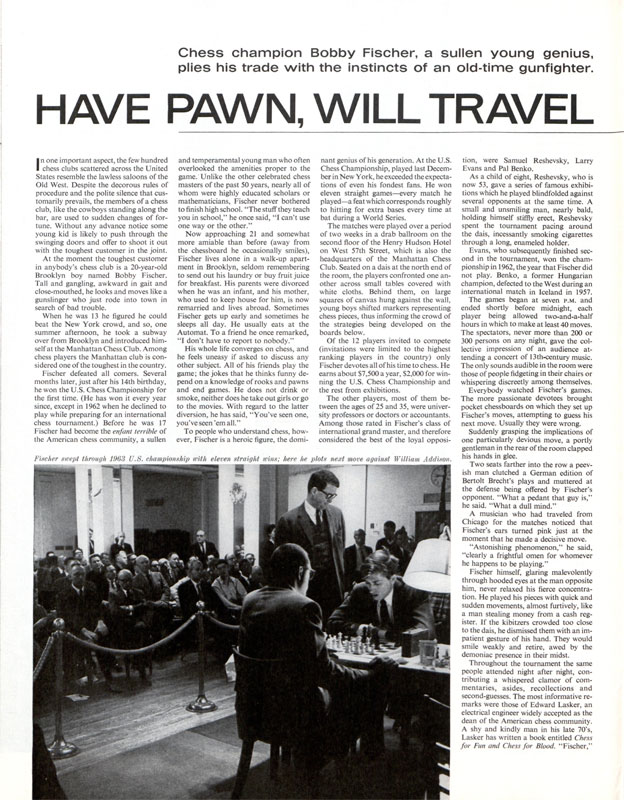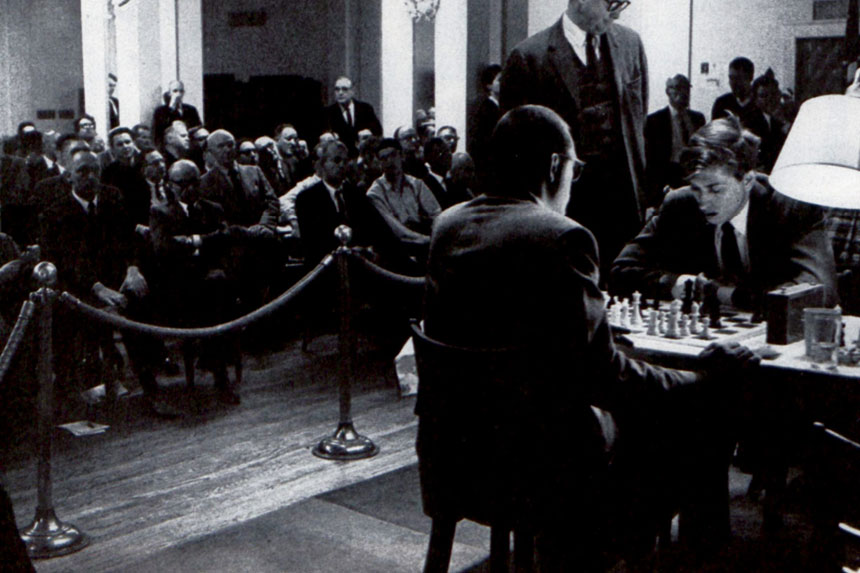—From “Have Pawn, Will Travel” by Lewis Lapham, from the February 8, 1964, issue of The Saturday Evening Post
At the moment the toughest customer in anybody’s chess club is a 20-year-old Brooklyn boy named Bobby Fischer. Tall and gangling, awkward in gait and close-mouthed, he looks and moves like a gunslinger who just rode into town in search of bad trouble. When he was 13 he figured he could beat the New York crowd, and so, one summer afternoon, he took a subway over from Brooklyn and introduced himself at the Manhattan Chess Club. Among chess players the Manhattan Club is considered one of the toughest in the country. Fischer defeated all comers.
Several months later, just after his 14th birthday, he won the U.S. Chess Championship for the first time. (He has won it every year since, except in 1962 when he declined to play while preparing for an international chess tournament.) Before he was 17, Fischer had become the enfant terrible of the American chess community, a sullen and temperamental young man who often overlooked the amenities proper to the game. Unlike the other celebrated chess masters of the past 50 years, nearly all of whom were highly educated scholars or mathematicians, Fischer never bothered to finish high school. “The stuff they teach you in school,” he once said, “I can’t use one way or the other.”

A shy and kindly man in his late 70s, Edward Lasker, dean of the American chess community, has written a book entitled Chess for Fun and Chess for Blood. “Fischer,” he said, “belongs in the latter category. He always wants to kill his opponent.”
Frank Brady, editor of Chessworld magazine, permitted himself a word of unequivocal praise. “Nobody can touch the kid,” he said. “The kid is very deep.”
To people who understand chess, Fischer is a heroic figure, the dominant genius of his generation. At the U.S. Chess Championship, played last December in New York, he exceeded the expectations of even his fondest fans. He won 11 straight games — every match he played — a feat which corresponds roughly to hitting for extra bases every time at bat during a World Series.

This article is featured in the January/February 2024 issue of The Saturday Evening Post. Subscribe to the magazine for more art, inspiring stories, fiction, humor, and features from our archives.
Become a Saturday Evening Post member and enjoy unlimited access. Subscribe now



